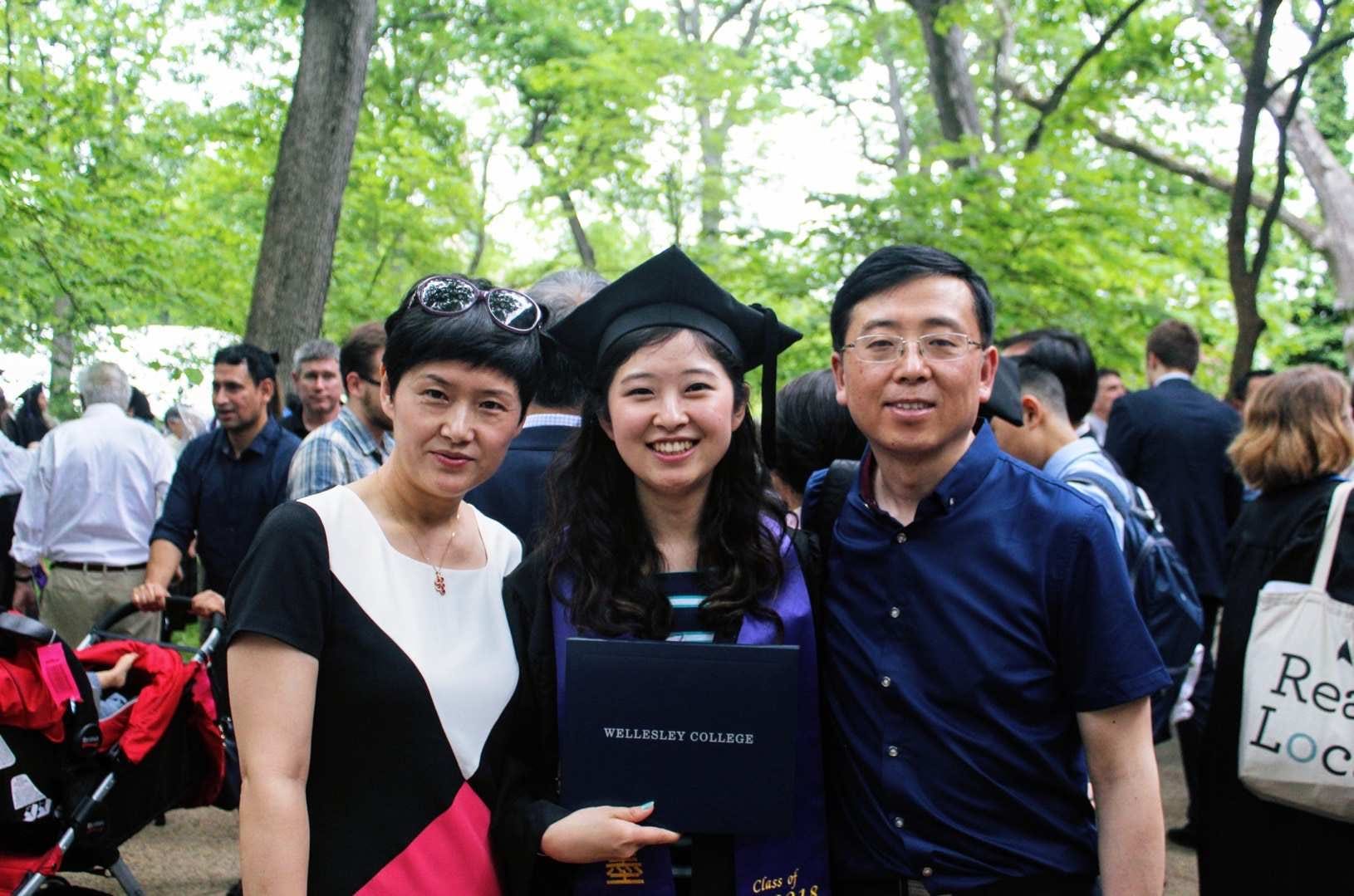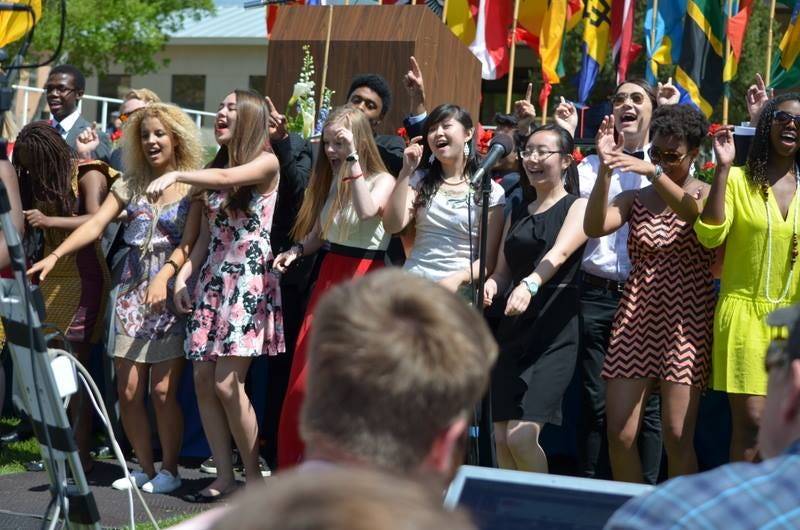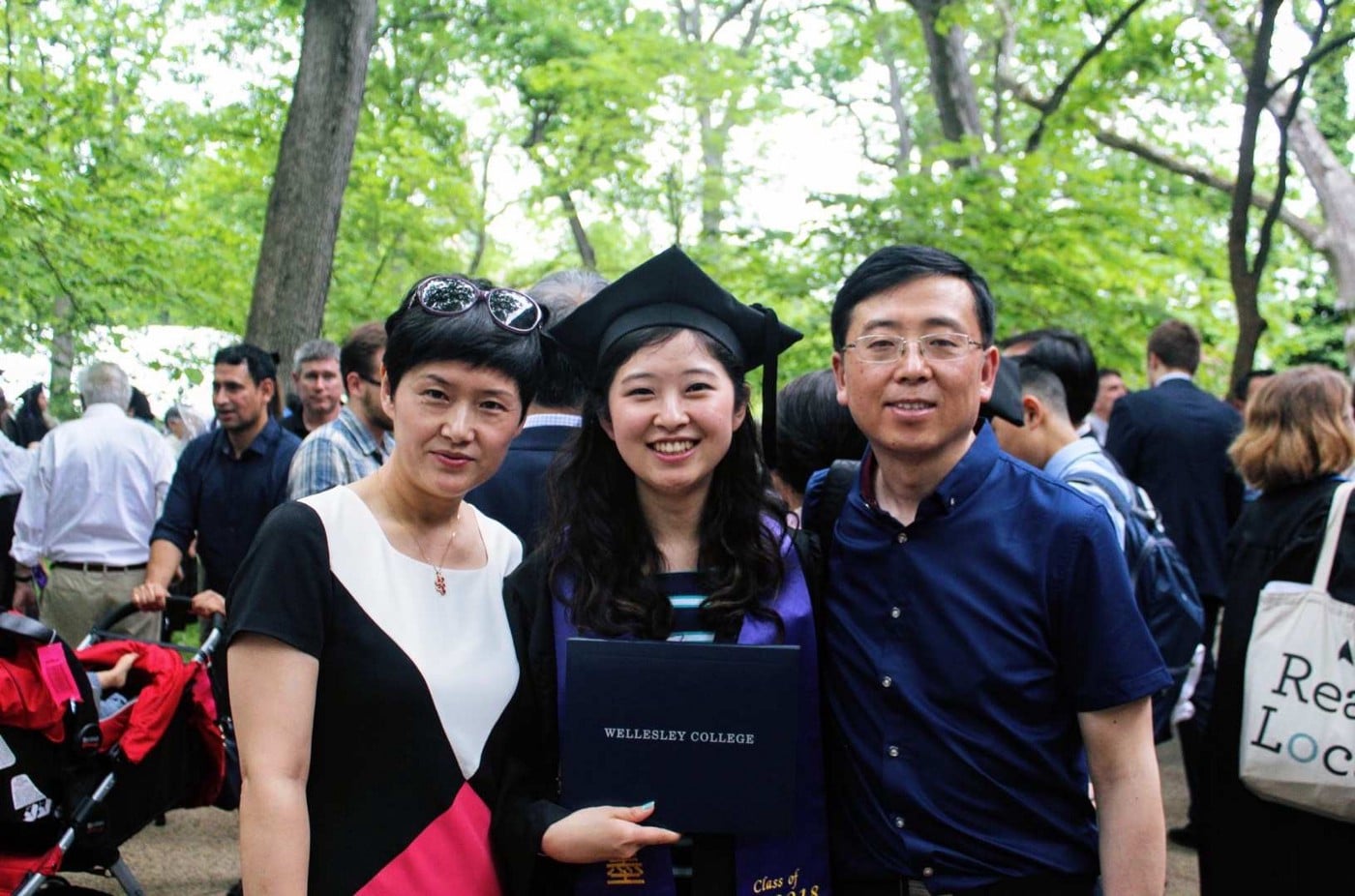I came to the US eight years ago for an international high school. Back then, I was encouraged to introduce myself as, “I am Mojia from China.” Gradually, in college, it turned into “I am Mojia, originally from China and came here 4 years ago.” Now, I wouldn’t go beyond “I am Mojia” unless explicitly asked because they heard this hint of an accent.
These subtle transitions not only reflect how much the people around me are interested in my background along the way but also how confused I felt about my identity. Recently I read up on Camus’s The Plague and resonated deeply with his feeling of “exile”. Increasingly, I have been stricken by a sense of estrangement, both in this country I am currently residing and my home country. COVID-19 exacerbated this frustration. This essay is equally a memoir of my struggle with identity and a quest to explore these essential questions: What does it mean to be Chinese? Are national identity and cultural identity the same? Can I safeguard my identity as a Chinese without feeling patriarchal or nationalistic? Here goes my story.
Shuttering of the stable identity
It’s the year 2012. Before I left for the US, I was preparing myself to answer the tough questions I knew people in the West loved to ask: on Tibet, Taiwan, Hong Kong, South China sea, pollution, and eating dogs. Back then, I wanted to win the debate and show the hostile westerners that they have their facts wrong. It was my duty to defend my country. I tried, only to get confused when friends raised certain “facts” I had never heard of, such as the Tiananmen massacre.
After high school graduation, I visited my best friend in Dharamshala, India — the place where the Dalai Lama and 15,000 other Tibetans live in exile. For the first time, while listening to the Tibetans’ story, I didn’t see the Dalai Lama as a traitor nor a separationist. He seemed human and was fighting for human rights. I felt this unsettling pain in my stomach; as a Chinese, was I not supposed to hate him? Why am I feeling so empathetic for their sufferings of being separated from their roots? Am I getting subjected to another narrative, western this time, or am I just gaining sobriety and confronting my fundamental identity as a human? That stable identity I had built for 18 years as a Chinese national was cracked open.
Soon after, I arrived at Wellesley College to start a new chapter of my life. I was excited to share my background with my new classmates when reality hit me on the head. Orientation is the perfect occasion for small talk, which all my American classmates seem to have mastered. They were talking about their favorite movies or TV shows, brands, food, and I was just sitting in the corner not being able to join in the discussion at all. The only time I would speak is to ask stupid questions such as “who’s John Oliver?” No one was interested in where I am from and why I was different.
I still remember I broke down in front of my orientation leader during the first week. Even though my high school was also in the US, it had 75% international students. Suddenly being in a place where there are <10% international students, many of whom have US citizenship and come from upper-class backgrounds, I felt out of place. In those moments, I had to face the reality that it is about them and not about me. I am an outsider here. The feeling of alienation engulfed me; I desperately wanted to fit in.
The quest to become Americanized
I swallowed my ego and learned to be more “cultured”. I made American friends. I let my bowl cut grow long and changed up my buttoned-up shirts to sweatshirts. I learned to talk in a more American way: basically exaggerated my emotion 100 times that of how I actually felt. I started asking more questions of others and expected fewer questions about myself. I read into American politics, history, and social struggles. I got my social security number, received my first paycheck, and filed taxes for the first time.

Gradually, my accent faded, to the point that the Uber drivers stopped asking me where I was from. I even mastered the art of small talk and subtle humor. When my parents finally visited for graduation, 6 years after I landed my feet on this land, I was proud to be their guide. Welcome to my home.

The eternal alienation
Home isn’t here, after all. It’s not about sounding American or looking American. Deep down, I knew there was something missing. Home is about belonging.
Fast forward to last year, my first year of starting working. I fell into an episode of depression. It’s one of those times where even if you had friends, your lack-of-energy quickly exhausts your social capital. While my parents were trying to comfort me as much as they could, they knew they didn’t understand my context to be helpful. All of us had to accept that I couldn’t just go home any given night and cry on their shoulders.
My immigration status amplifies this alienation. On paper, I am a “resident alien”. I could be kicked out as soon as my employment ends. It means I couldn’t easily quit my job to either start or join a no-name startup. I can’t be as “bold” as some of my American friends, even though I am just as ambitious. When a Chinese Facebook engineer committed suicide last year, I cried. I empathize with how it must have felt not only having his career on the line but his entire family’s visa status and the life they were able to build for themselves. I couldn’t imagine how helpless he must have felt before deciding the pain isn’t worth enduring after all. It doesn’t matter that we are paying as much tax as the Americans; we have no say in this matter. It’s the ultimate silencing.
But they say, didn’t you opt into this yourself?
Outcasted from home community
It’s one thing to accept the fact that you won’t fully fit in this society you didn’t grow up in, quite another to feel outcast in the home society. Over the years, my family became my only contact in China. No matter how much I want to keep my friends, we are simply thinking about different things and living in parallel contexts. I didn’t care for the estrangement these issues are causing until the debate I had with my mom two weeks ago about the origin of COVID-19 hit home for me.
After writing the last essay on “what’s our takeaway from COVID-19”, I translated it into Chinese and asked friends and family to share on WeChat. My mom called me and advised me to not share because of political sensitivity. We went into this debate on the origin of COVID-19 with my mom defending the “WeChat mainstream view” that the American army brought the virus to Wuhan. I was amused at first because it’s pure absurdity. After the first few tries of rational argument went futile, an initial shock was soon taken over by an overwhelming frustration. I launched into this full-on debate as if my life was on the line. My roommate still laughs today saying how she was hearing “OMFG”, “WTF” and “Jesus Christ” amidst my Chinese. Thankfully, my mom had no idea what these meant.What’s our takeaway from COVID-19?“What do you hope our main takeaway is from COVID-19”, a friend asked during a video chat.medium.com
In the end, she admitted she had to hold these views because she is Chinese and has the responsibility to defend her country. Just as I was about to laugh and declare victory, she emphasized I have it too. My home country has spent all these resources to have me educated and it’s my duty to protect its integrity. I shouldn’t be ungrateful.
I had a flashback to my high school days defending China’s policy on Tibet and fulfilling my duty, and then that summer in Dharamshala questioning everything I was told before. I realized I had stopped identifying with nationalist duties and patriarchal values due to my education and diverse exposure. I was able to transcend this Chinese nationalism. My mom, however, still lives in that same narrative after all these years.
As immigrants like me started to “flee” back to China from abroad and some brought the virus back causing the second wave, the social media commentary of telling the “traitors” to “go back” is ever so strong. The overseas Chinese suddenly became a public enemy. In the public’s eyes, we are the privileged people who are taking advantage of the best of both worlds: we can move freely between the developed West and the safety of our home country. As much as I empathize with those who felt left out, it astonishes me how prevalent this hatred is. I felt the exile from an entire nation so bonded by this nationalist sentiment.
Where do I go from here
Sometimes I think this loneliness I feel being stuck in two nations and two sets of value systems is the price I am paying by leaving home in the first place. It takes a lot of courage to be an immigrant, leaving the familiar context behind while aspiring for a better life. It’s often a one-way journey. Once you start, there is no way back.
But there is also so much beauty in this experience that I have come to appreciate. I feel privileged to not have a stable identity imposed on me but to be able to construct my own. In doing so, I’ve become aware of the difference between one’s national identity and cultural identity. National identity is situated in time and space. It’s an identity assigned to people in a particular nation bounded by a certain political narrative, most of the time since birth. Cultural identity, however, carries through history, traditions, food, and tales. It transcends time, nationality, even ethnicity. A white person who feels an affinity to Chinese culture can absolutely construct this cultural identity. It made me realize I wasn’t joking when I tell my friends I feel a quarter Chinese, a quarter American, a quarter Mexican, and a quarter Indian. It’s a legitimate construction of cultural identity based on my life experiences.
It’s so powerful to be able to let go of one’s national identity. Since I now subscribe to neither Chinese nor American nationalism, I am able to walk away from nationalism altogether and embrace a larger set of identities: as a global citizen, a human, a being in the natural world. I was also able to transcend other identities that were nationalism-like, such as religion, ethnicity, gender. These are all things that divide us despite our inability to choose the in-group or out-group. Luckily, rejecting these identities is not at a cost to my cultural identity. If anything, I have learned to gain a stronger appreciation of what’s been passed down to me through generations, while adopting an open-mind towards other equally splendid cultures.

In this globalized world, nationalism is on the rise as a mechanism to cope with all the change globalization is bringing. Instead of going against the trend that’s inevitable, we can choose to embrace it by adopting a new and larger set of identities that make us citizens of the world and beings in the bio ecosystem. It’s completely in our power to determine how large our in-group can be. No matter how much we feel bound or obligated to the “family” we were born into, it’s the “family” we choose that defines us.
*if you enjoyed it, 50 claps highly encouraged 😀
This blog was published with permission from Mojia Shen. If you’d like to read more blogs by Mojia, click here.


